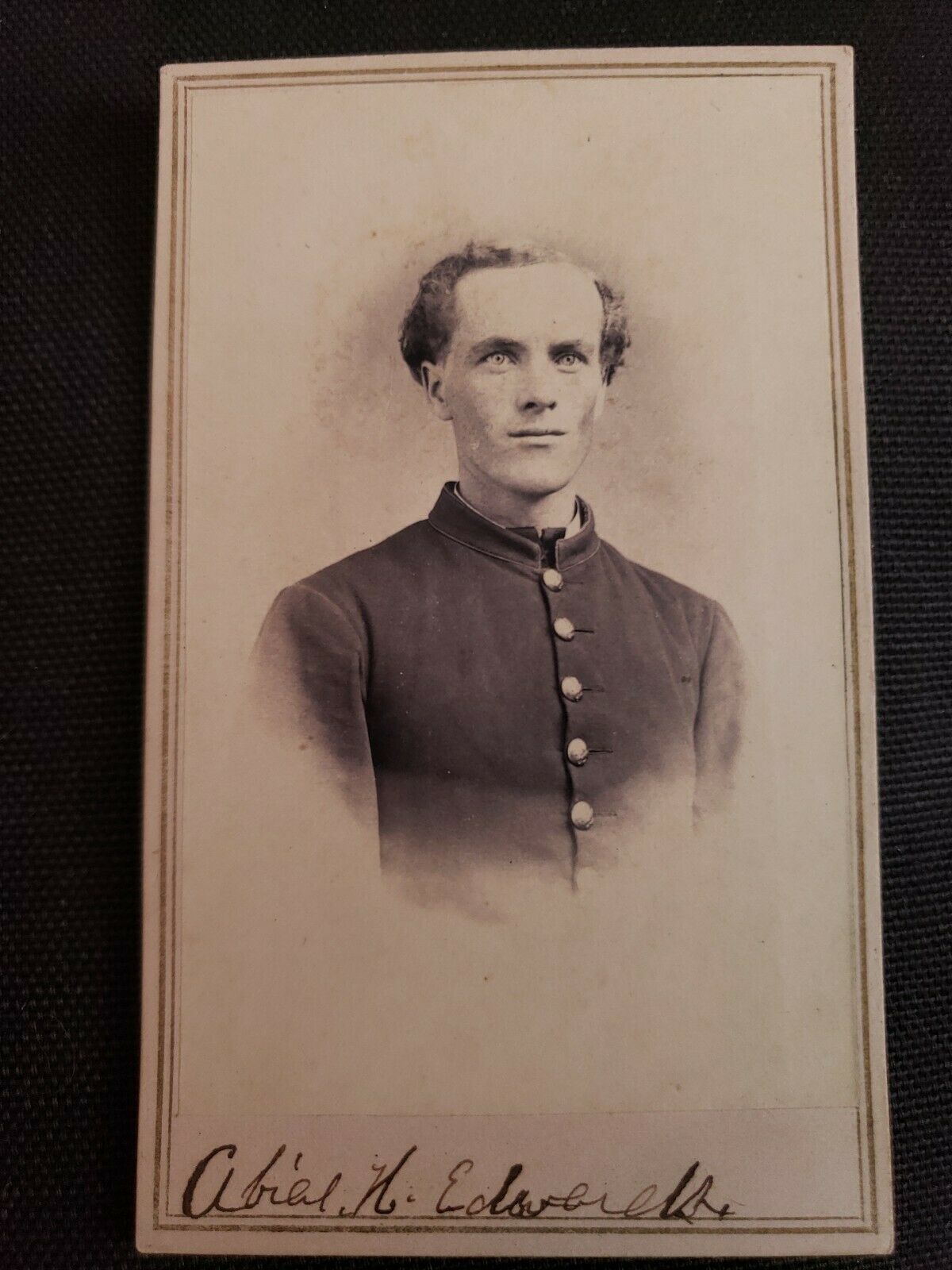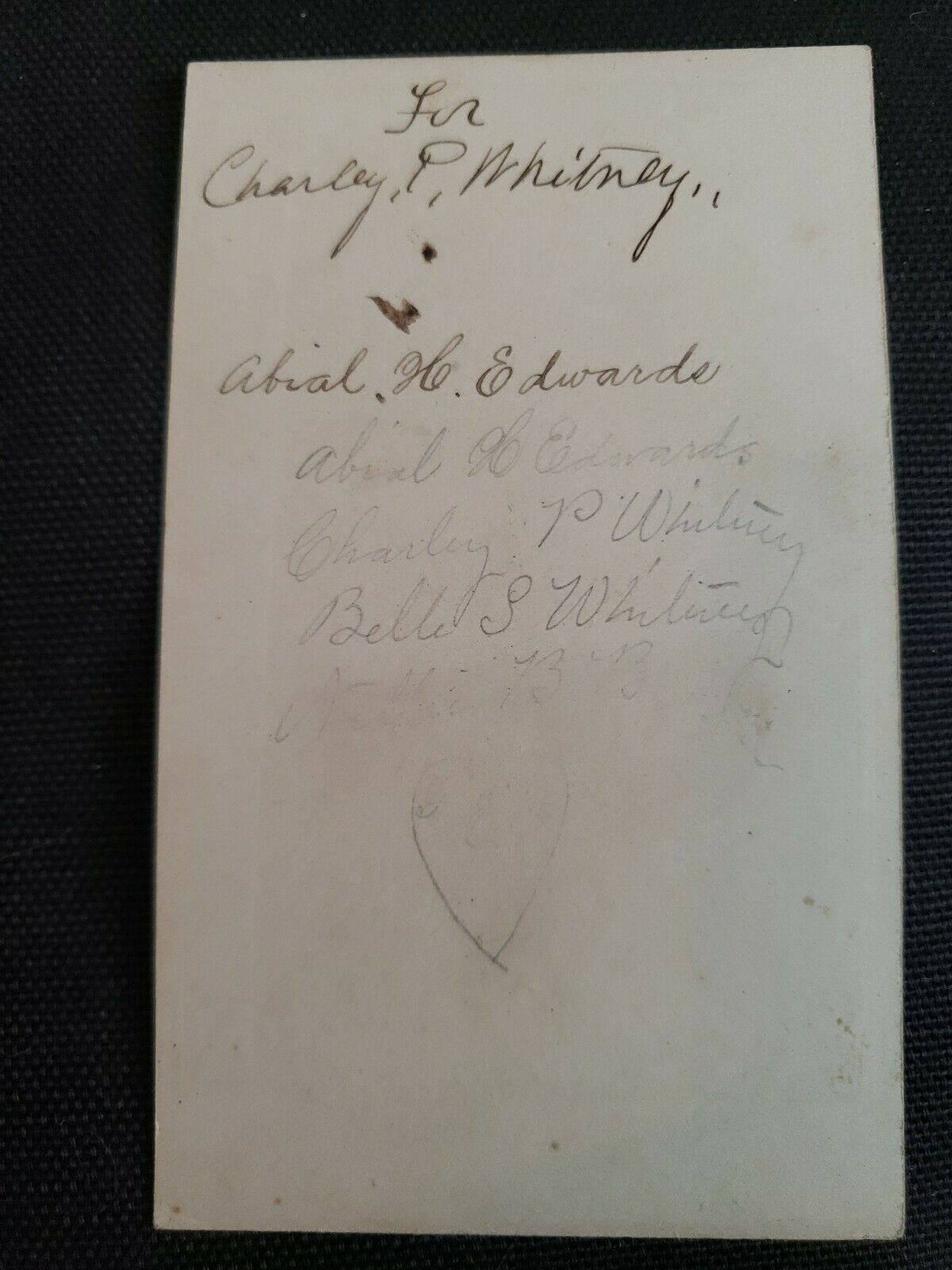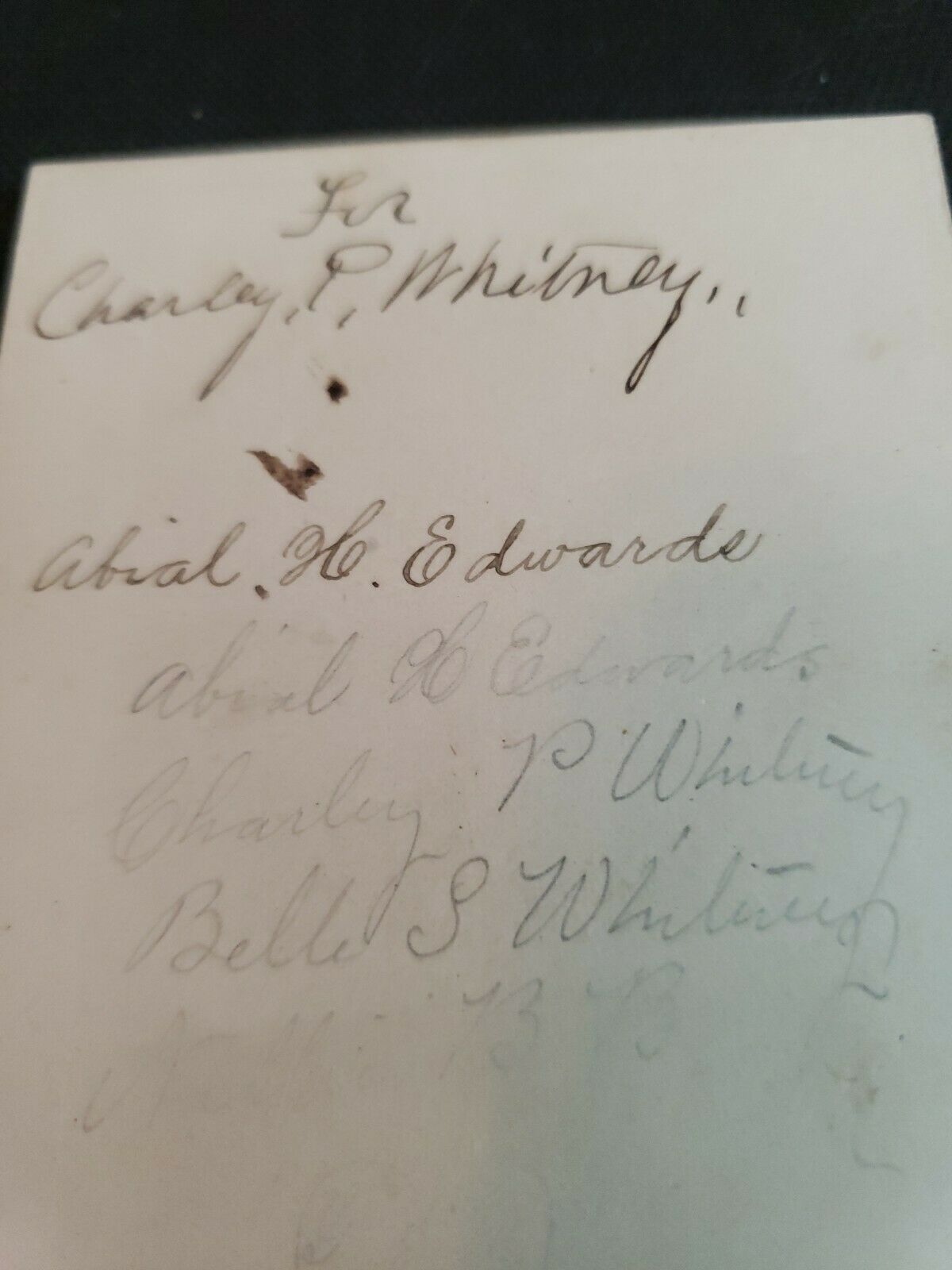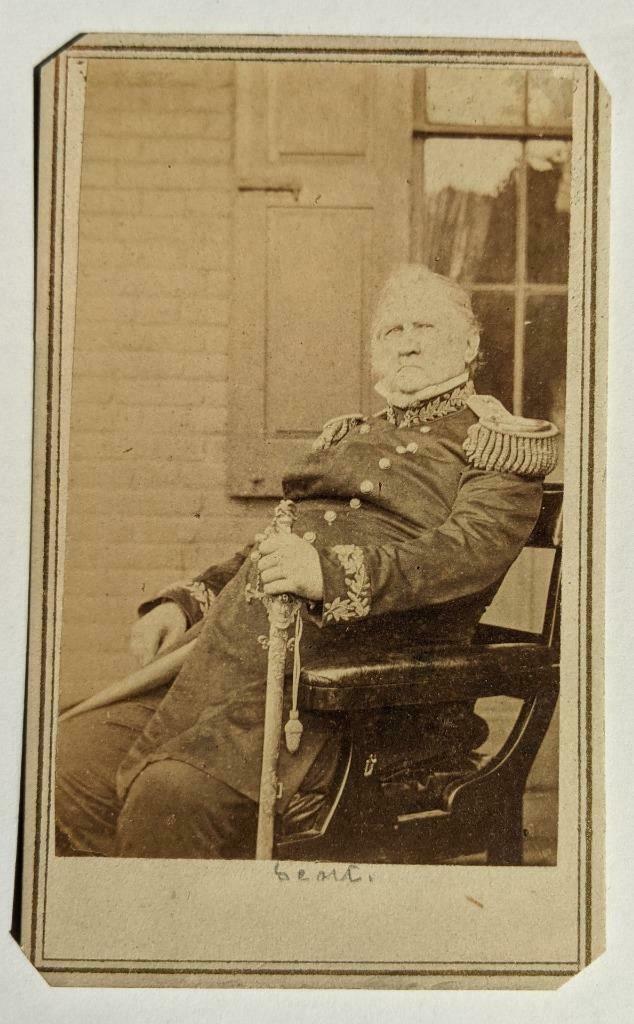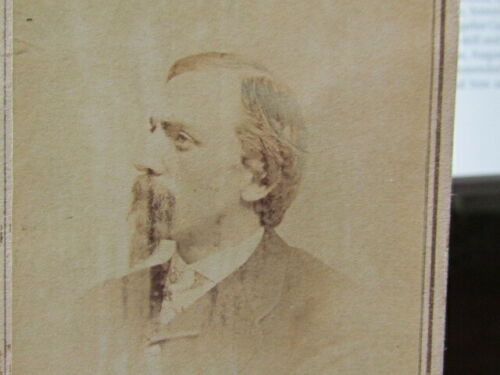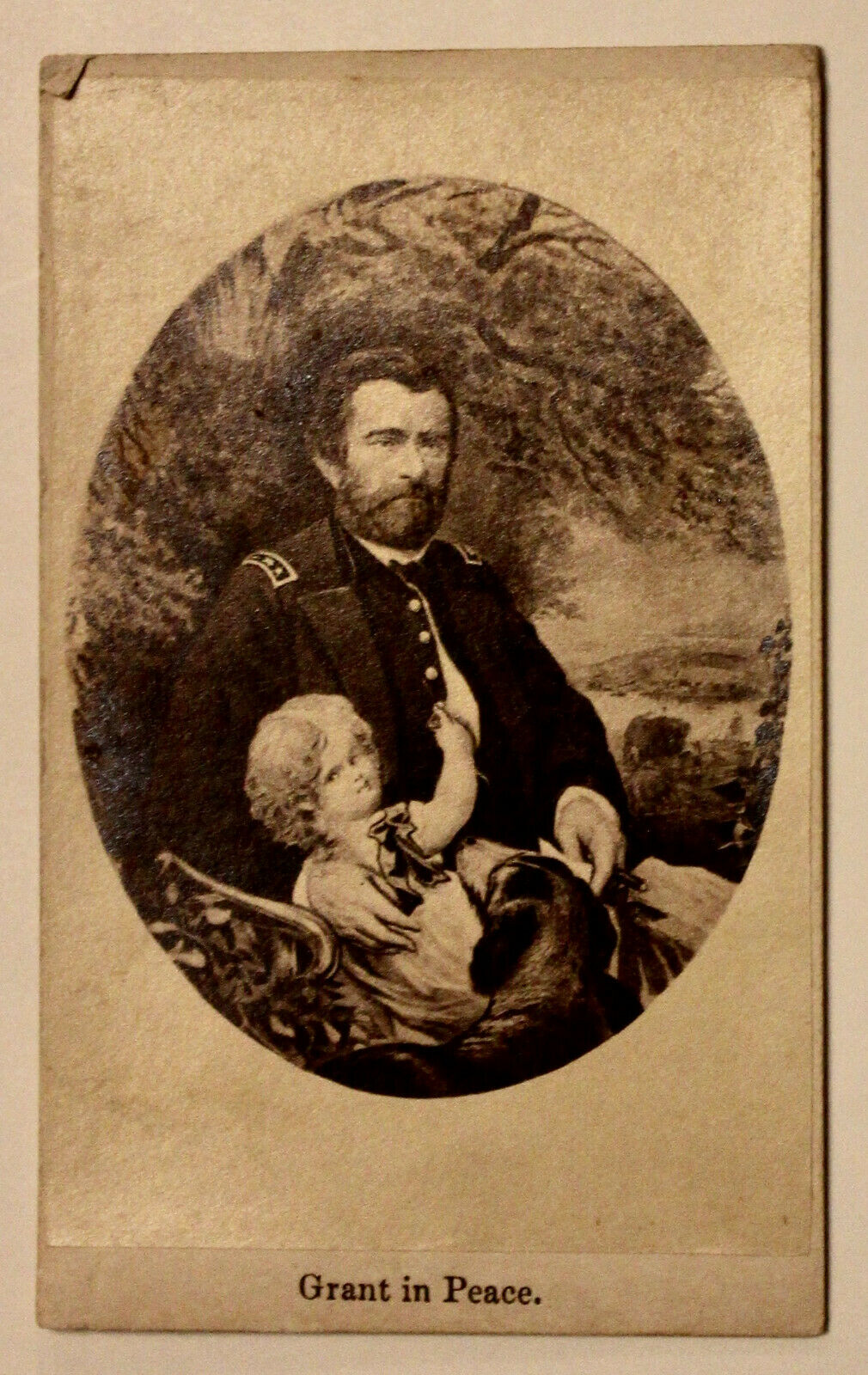-40%
Signed Abial Edwards Civil War CDV 10th & 29th Maine Regiment Antietam
$ 23.76
- Description
- Size Guide
Description
This is a double signed Signed Abial Edwards Civil War CDV. Given to Charley Whitney. The following is paraphrased from the Army War College website, who maintains the letters written by Edwards to his future wife.Edwards's life as a soldier began in Portland, Maine, where he mustered with Company K, 10th Maine Regiment on October 4, 1861, and then moved to Maryland where Edwards was to protect the Baltimore and Ohio Railroad. He next went to Virginia with Major General Nathaniel P. Banks during the Shenandoah Valley Campaign. That campaign included the Battle of Cedar Mountain, the first sustained military action involving the 10th Maine. Afterwards the regiment merged with Major General George B. McClellan's Army of the Potomac that had just returned from the Peninsular Campaign. They followed General Robert E. Lee's Confederate forces into Maryland where Edwards experienced the bloodiest battle of the Civil War—Antietam. After his enlistment expired in May 1863, Edwards returned home for over half a year and saw Anna during his leave.
Edwards reenlisted with the 29th Maine Regiment and returned to the war on November 13, 1863, bound for New Orleans and Louisiana bayou country. Edwards and the 29th Maine joined Banks's Army of the Gulf for the Red River Campaign. The regiment returned to Washington, D.C., on July 13, 1864, and merged with Major General Philip Sheridan's Army of the Shenandoah where they remained until the end of the war. Edwards traveled back to Washington for the Grand Review in May 1865 after the Union's victory. On their journey to Washington, D.C., Edwards described the overwhelming sadness and loss caused by the assassination of President Abraham Lincoln. But, the war did not end there for Edwards. He and the regiment were sent to South Carolina for occupation duty where he served as postmaster until he was finally able to return home in early 1866.
